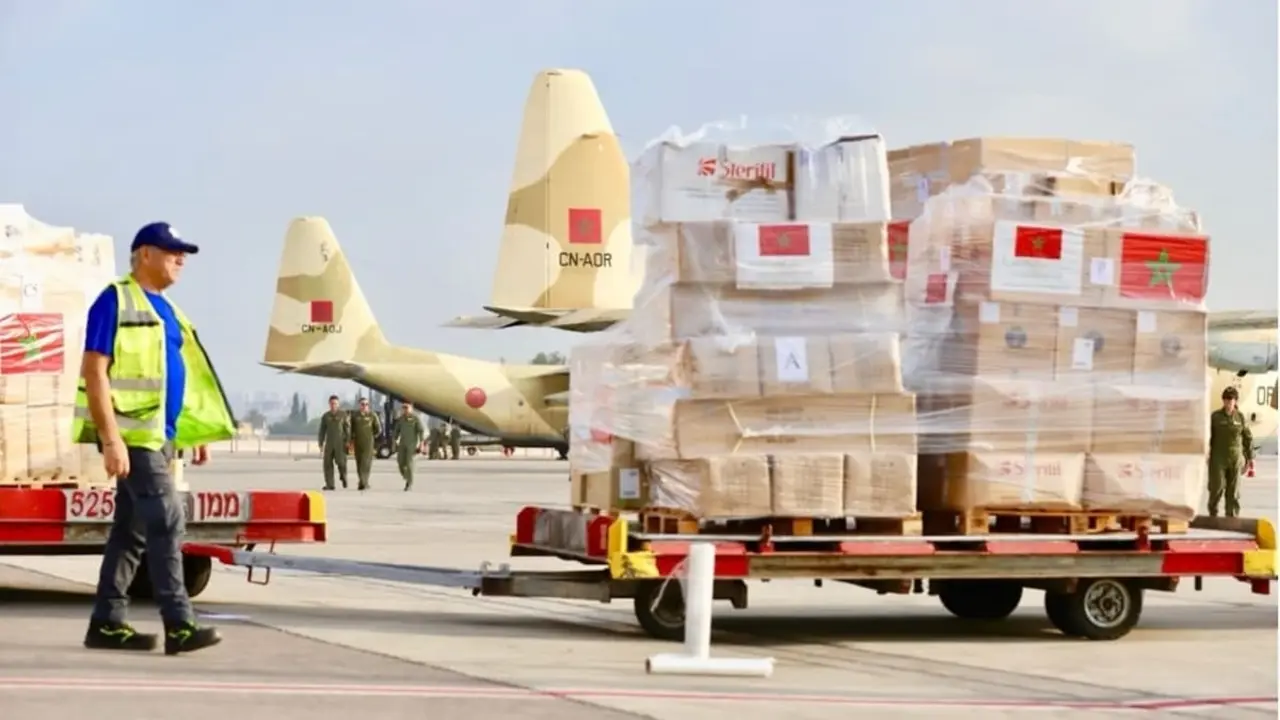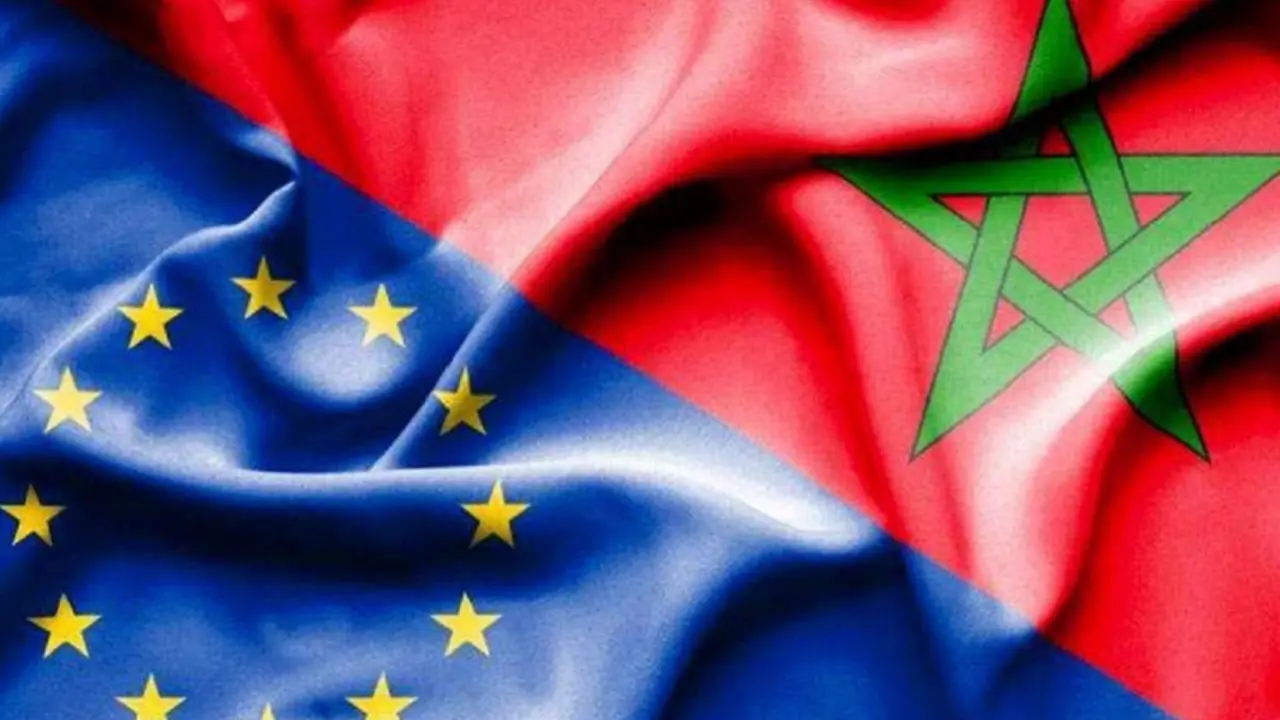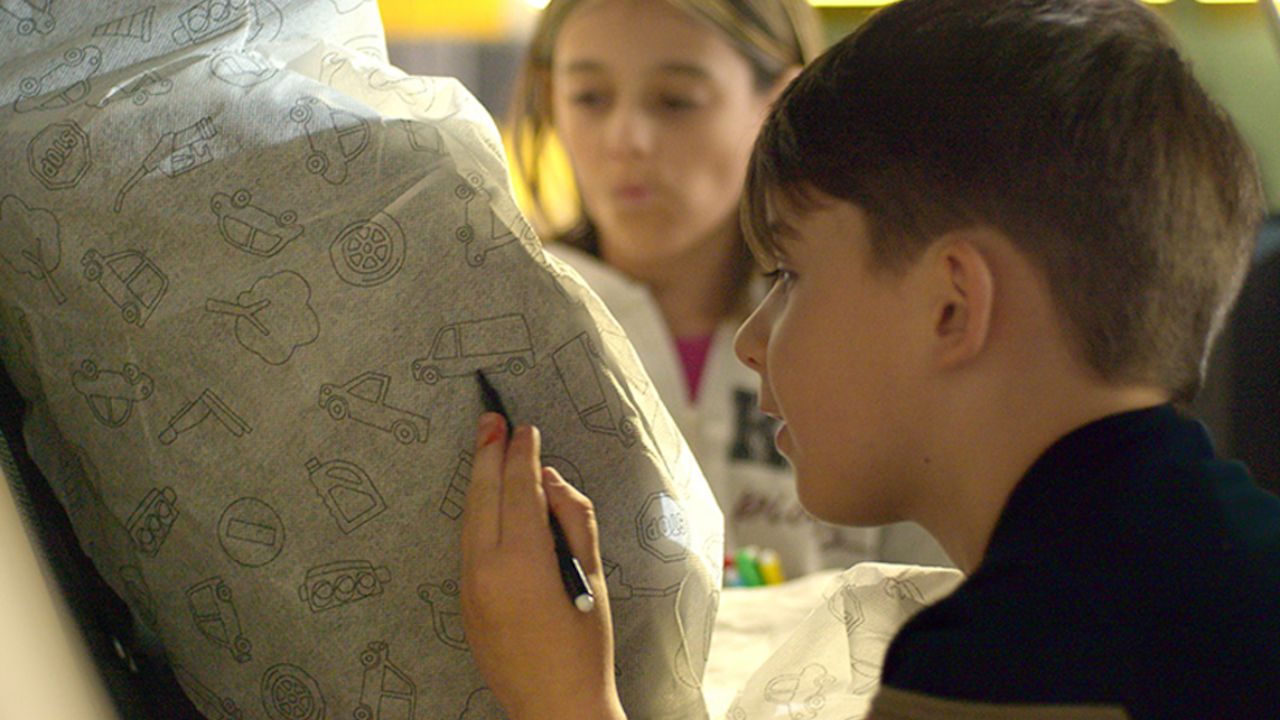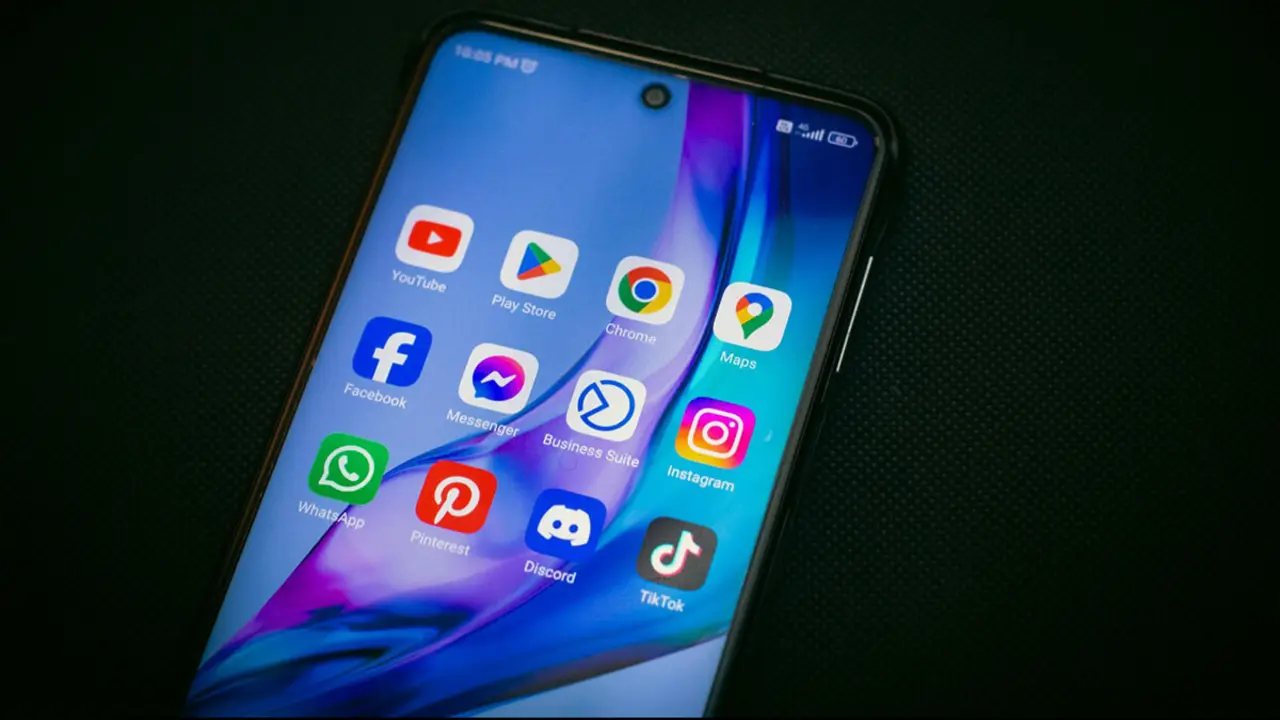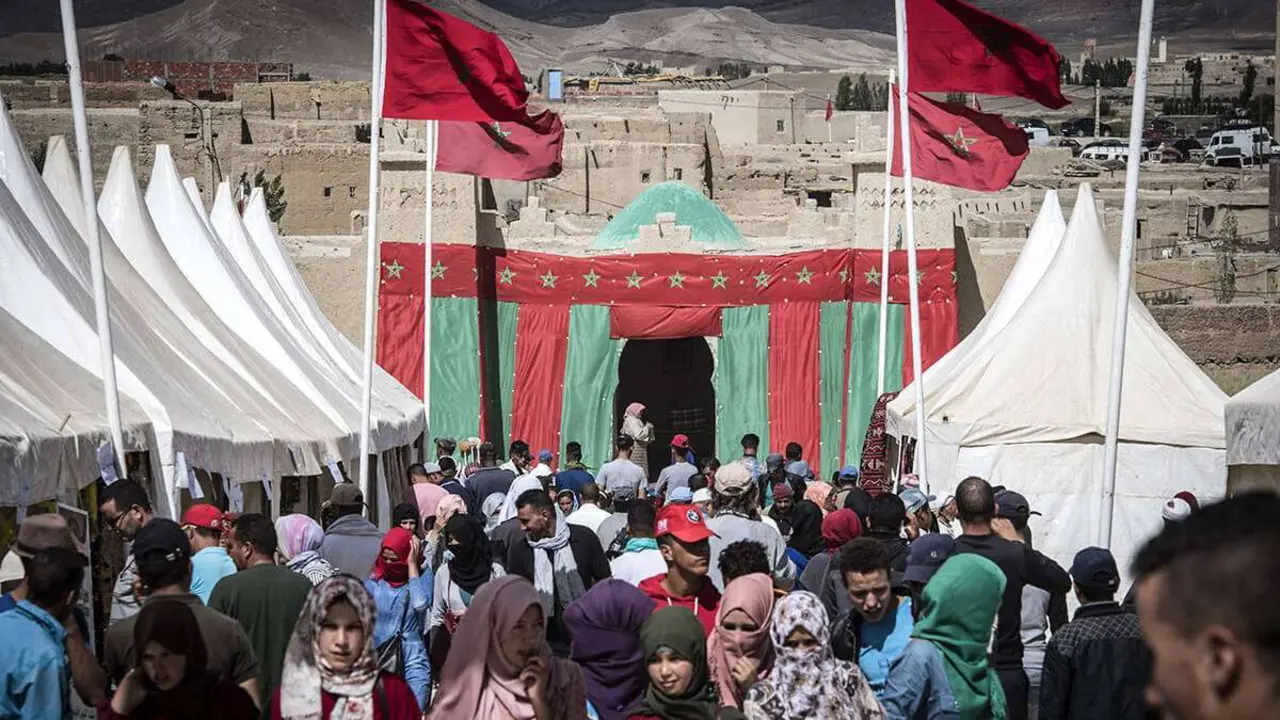A virtual waistcoat capable of saving lives

The organisation Reporters Without Borders has presented a new application at the Arab House that aims to help journalists working in conflict zones. Called "Digital Waistcoat", this application is designed to alert and protect correspondents who find themselves in situations of risk. The application is supported by the Ministry of Foreign Affairs, European Union and Cooperation.
TalentoMobile has been the company that has developed and designed the functioning of the innovative application. In this sense, its use is intended to "launch an SOS" when journalists are "in real danger" or to "share the itinerary of a trip that involves the possibility of kidnapping or attack". In this way, the tool seeks to "improve the safety of journalists who are in conflict zones" in four ways: Its operation is quite simple, through a geolocation system that allows information to be sent and the current location to be shared for a period of time determined by the user. It also has the capacity to register the level of danger that could exist in the area and warns of possible cases of cyber-bullying so that the situation is also known on the networks.
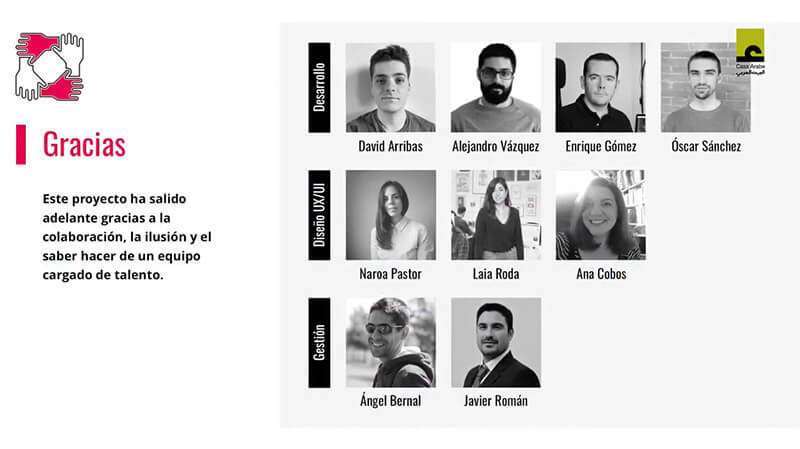
The tool has a data storage of places that are hostile to journalistic work, so it is intended that this application works as a "waistcoat" that allows them to protect themselves from the dangers they may face.
The day was highly symbolic, as the event paid tribute to David Beriáin and Roberto Fraile, two Spanish journalists who were killed in Burkina Faso while filming a report on poaching. The event was attended by a friend of David Beriáin, Natalia Junquera, who said that "David wanted to understand in order to share" and shared some words that Beriáin repeated, stating that "this profession frees you from the greatest enslaver that exists, ourselves. Journalism is the religion of the other, a continuous learning about human nature, sometimes where it is clearest is in the extremes of reality".
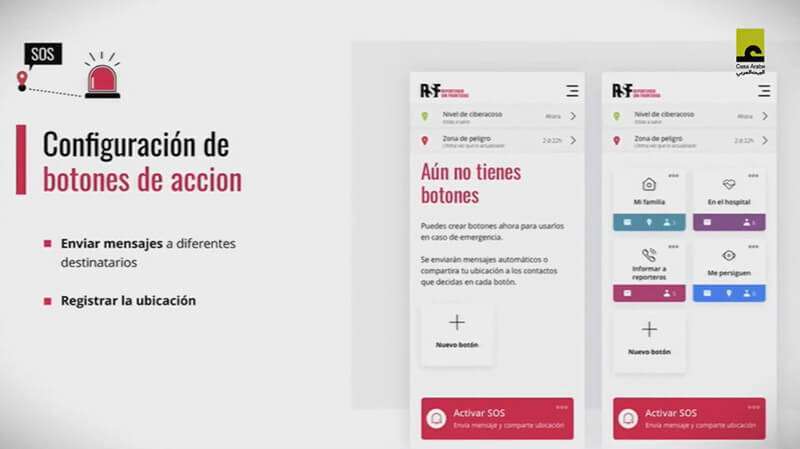
Junquera went on to mention his friend Beriáin: "Journalism is invented, you have to do it well". He continued: "In wars you see horrible things and it is possible that this violence ends up reaching you (...) I am not going to solve it, but we can draw attention to the people who make the decisions so that they fix the situation and stop hurting each other".
The vice-president of Reporters Without Borders, Pilar Bernal, said at the event that "at Reporters Without Borders we are trying to think about how we can alleviate, even if only minimally and in some way, these dangers". Bernal went on to explain that the idea of creating an application to record data on where hostile situations occur for journalists was an idea that Reporters Without Borders' secretary general, Alfonso Baouluz, had "with great vision" and "that little by little we found a way to get it off the ground".
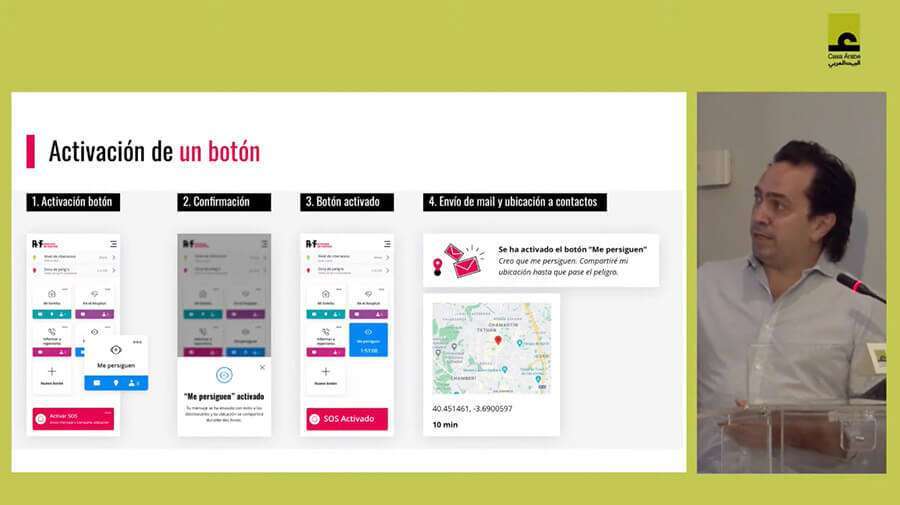
The Secretary of State, Cristina Gallach, said that "we should not be afraid of journalists, of those who inform. They help us to do a better job, sometimes a small act produces a transforming act (...) and this application is an example of this".
Similarly, journalist Alfonso Armada declared that "from the concern of Reporters Without Borders for a job as precious as telling the reality and telling the pain wherever it is, a virtual waistcoat of this nature seems to us to be another tool", as necessary as the physical waistcoat. In the same vein, he said "it is an element that will provide more security".
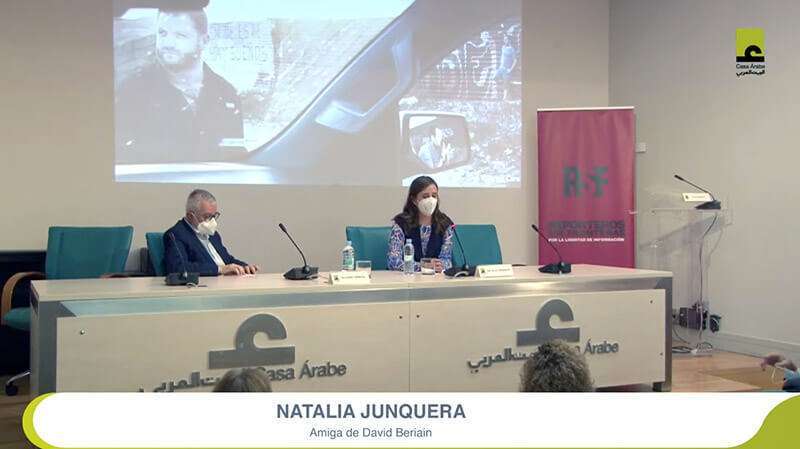
At the moment, 'Digital Waistcoat' is only available for Android and requires internet access to work. Similarly, the design has an "SOS button" that must be activated and configured so that journalists in conflict zones can activate it.
In this way, this innovative waistcoat is part of one of the main pillars of Reporters Without Borders, the protection of journalists in dangerous situations. In addition, the application will join other services already offered by the organisation, such as the free loan of bulletproof vests and helmets to freelance reporters.
According to the organisation, so far this year, 11 journalists have been killed and 324 journalists are currently imprisoned.

